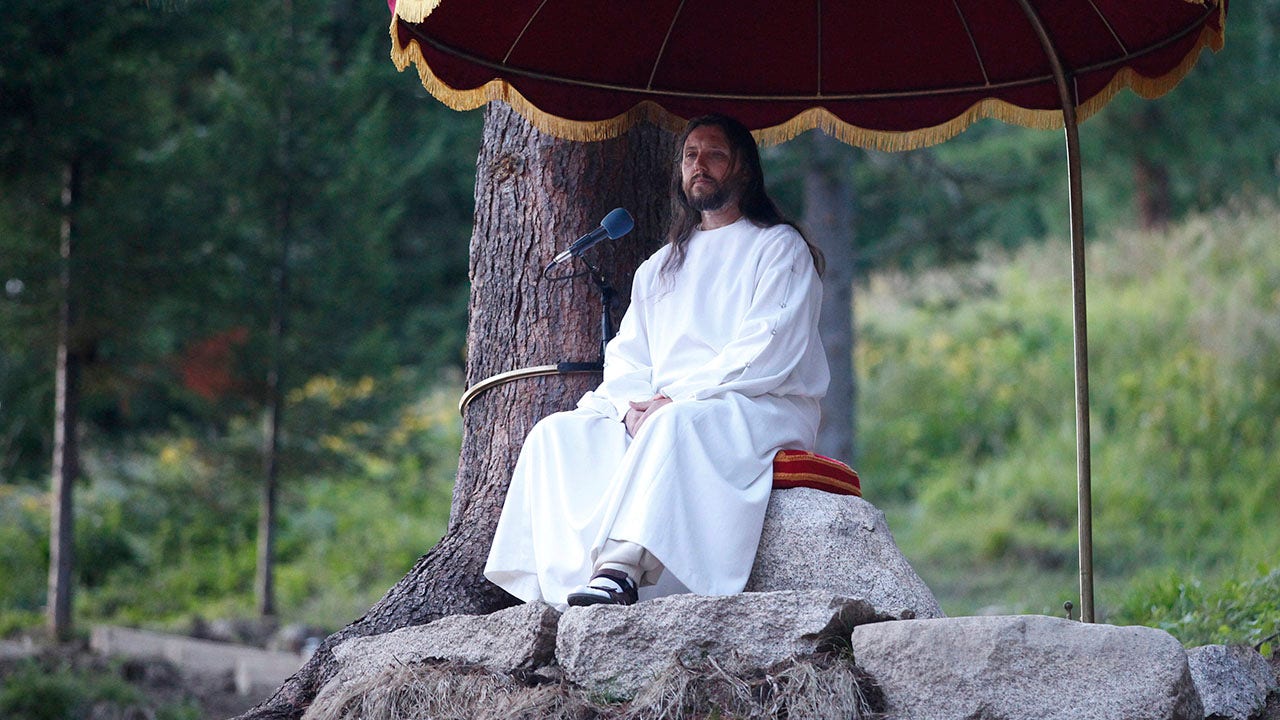Siberian cult leader who claimed to be Jesus gets 12-year sentence

A Siberian cult leader who goes by the name Vissarion, claiming to be the reincarnation of Jesus Christ, has been sentenced to 12 years in a Russian prison camp for physically and financially harming his followers. Along with two aides, Sergei Torop used psychological pressure to extract money from his followers and cause serious harm to their mental and physical health.
Torop, 64, established the Church of the Last Testament in a remote area of Siberia’s Krasnoyarsk region in 1991, shortly after the dissolution of the Soviet Union. He attracted a large following and set up a settlement known as the “Abode of Dawn” or “Sun City,” where his followers lived according to his teachings.
The self-proclaimed mystic instructed his followers to abstain from eating meat, smoking, drinking alcohol, swearing, and using money. He claimed to have been “reborn” to convey the word of God and led his followers to live a simple and ascetic lifestyle.
However, investigations revealed that Torop and his associates had brought harm to several individuals, causing damage to their physical and mental well-being. The men were arrested in 2020 in a helicopter raid conducted by the FSB security service, the successor to the Soviet KGB.
In a trial held in the Siberian city of Novosibirsk, Torop, Vladimir Vedernikov, and Vadim Redkin were found guilty of committing various offenses. Torop and Vedernikov were sentenced to 12 years in a maximum-security prison camp, while Redkin received an 11-year sentence.
Vedernikov was also accused of fraud, as reported by the RIA state news agency. The sentencing marks the end of a long legal battle that exposed the dark side of the cult led by Vissarion, shedding light on the manipulation and exploitation of his followers.
The case serves as a cautionary tale about the dangers of charismatic leaders who prey on vulnerable individuals seeking spiritual guidance. It highlights the importance of critical thinking and skepticism when following religious or spiritual figures, urging followers to be vigilant against manipulation and abuse.
As the followers of Vissarion grapple with the aftermath of his conviction, the story of the self-proclaimed messiah serves as a stark reminder of the thin line between faith and fanaticism. The cult leader’s fall from grace underscores the need for transparency, accountability, and ethical leadership in religious and spiritual communities.




